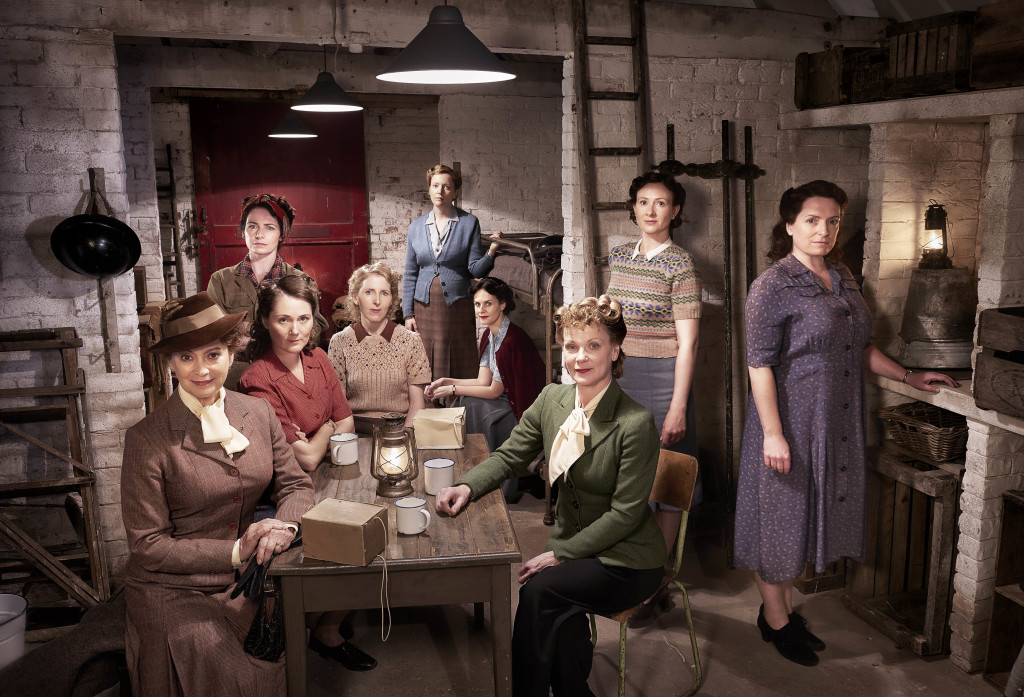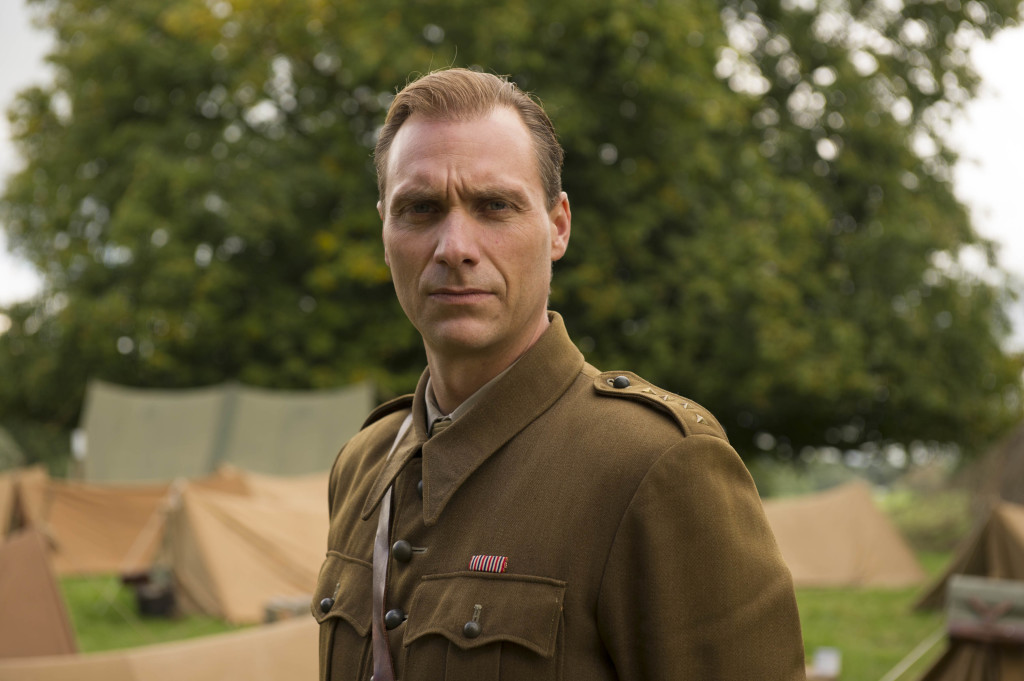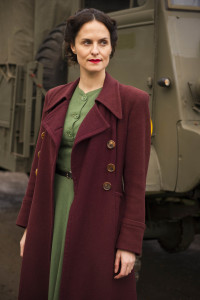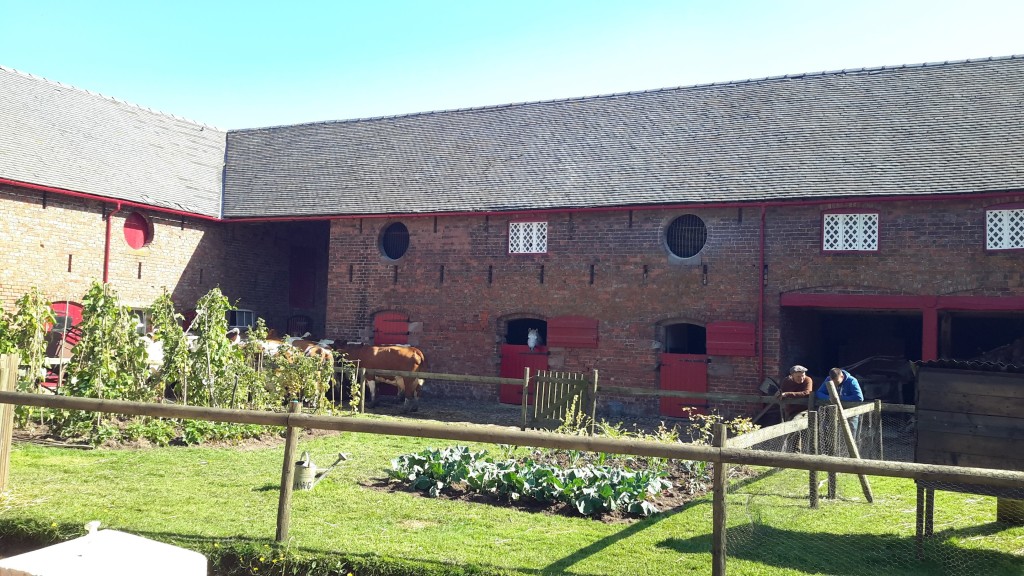
I know that I am opening myself up to criticism by writing a blog about ITV’s decision to axe Home Fires after two series. However, I am determined to have my say. First I want to express my immense thanks to everyone who has shown support for the show on Twitter, Facebook and to me personally by email and phone. ITV’s decision came out of the blue to me and I was very sad.
The reason given yesterday was expressed by Janice Troup, head of publicity at ITV. She said: ‘We are incredibly proud of what Home Fires has achieved, but the ITV commissioning team continues to refresh the channel’s drama portfolio, hence the decision not to commission a further new series.’
 That is obviously a bitter disappointment to everyone who loves the show but it does at least give us a reason. There are wild rumours flying around the internet and most of them make me smile. However, there is one I want to stamp on with the biggest pair of jackboots that I can find: History. I have read this morning that the reason ITV has axed the show is because the history is inaccurate. That is categorically not true. I cannot emphasise that enough. The history is the skeleton on which the drama is constructed. I’m talking about the dates, storylines and facts. There are two historical consultants, Terry Charman, and me. Terry worked at the Imperial War Museum for decades and is the leading expert in the country on the wartime Home Front. He was a consultant on Foyle’s War and his eye for detail is second to none. But he, like me, only advises on scripts. My background is also steeped in the history of the Second World War. I’ve been working in the field for 15 years and my specialist interest is in the Home Front from the women’s perspective. Believe me, the historical backbone to the scripts is solid.
That is obviously a bitter disappointment to everyone who loves the show but it does at least give us a reason. There are wild rumours flying around the internet and most of them make me smile. However, there is one I want to stamp on with the biggest pair of jackboots that I can find: History. I have read this morning that the reason ITV has axed the show is because the history is inaccurate. That is categorically not true. I cannot emphasise that enough. The history is the skeleton on which the drama is constructed. I’m talking about the dates, storylines and facts. There are two historical consultants, Terry Charman, and me. Terry worked at the Imperial War Museum for decades and is the leading expert in the country on the wartime Home Front. He was a consultant on Foyle’s War and his eye for detail is second to none. But he, like me, only advises on scripts. My background is also steeped in the history of the Second World War. I’ve been working in the field for 15 years and my specialist interest is in the Home Front from the women’s perspective. Believe me, the historical backbone to the scripts is solid.

The story of Miriam Brindsley leaving her son’s name off the National Registration form in September 1939 is based on fact. The Office for National Statistics confirmed with me that some 60,000 women left their sons names off the list in order to avoid them being conscripted. Not out of cowardice but out of fear for the slaughter they had witnessed in the last war. The Czechs in series 2 are completely authentic. In the summer of 1940 Churchill welcomed nearly 5,000 Czech and over 20,000 Polish forces into Britain as battle-hardened fighters with far more experience than the BEF. And deliciously for us, the Czechs landed in Liverpool, were sent by train to Bunbury and marched to Cholmondeley Castle in Cheshire where they spent the summer. As followers of Home Fires will know, Bunbury is the village where the fictional Great Paxford is set.

I will concede that there is a question to be answered about the use of language. It would be impossibly faux to make the actors use words and speak like my grandmother did in 1940. She had clipped consonants and very odd vowels. Really was pronounced ‘rarely’ and country sounded as if it had a deep sounding ‘unt’ in the middle followed by ‘tree’. I am not going to try and spell that out using a ‘c’ at the beginning. The script writer has to have the freedom to use dialogue which will not jarr with a twenty-first century audience but which will sound sufficiently accurate to match the period. It is a juggling act and I think by and large it works well.
The production team do a marvellous job at creating a wartime feel and I particularly want to single out Lucinda Wright who was the costume wizard for the first series. I think she created an outstanding wardrobe. The hair and make-up teams are also excellent, even though they did put me in a grey wig when I made my one and only cameo appearance. Bunbury dressed up in its wartime garb looks magnificent. So much so that when my eighty-seven year old father drove through the village one day after filming he could not tell what had been altered to take it back in time. There are people in the audience who point out little inconsistencies, such as maize in Cheshire in 1940 or the D-Day markings on a Spitfire but sometimes there is no other possibility. The Spitfire question is one that gets some people hot under the collar but let me say that there are less than 50 Spitfires still in one piece. I know, I saw them at Goodwood last year and they are breathtakingly impressive, still. It is nearly 80 years since the Battle of Britain and given how many sorties the RAF was involved in between then and 1945 it is not surprising that there is such a small pool of planes to choose from. Unfortunately for us, no one in 1940 thought of tucking one away in a hangar for 75 years so we could film in 2015. And the maize. Well, there was maize grown in Britain in 1940 but not in Cheshire. However, when it came to filming there was no other crop available to be picked. Sometimes you just have to go with what is there.

Everyone on the series does their very best to get things right and historical inaccuracy is definitely not the reason for the show going. ITV is a commercial broadcaster and they will have probably made their decision for commercial reasons.
I would like to celebrate Home Fires. It has been the most thrilling experience of my career being involved in this wonderful series. And although I am sad that there will not be a third series on ITV, I would like to think that the show will live on in people’s memories as a great example of period drama. The cast have loved being involved and are as sad as the audience are. They were the first to spring onto Twitter and thank their six million loyal fans for their support. It has been heart warming and uplifting to hear so much passionate praise for them and Home Fires.
When I spoke to the Executive Producer, Catherine Oldfield, yesterday, she told me how sad she was and she apologised to me. Why apologise? I can’t thank her and her team enough for taking my book Jambusters and creating something of such sparkling brilliance. When I asked her whether she thought there was any future for Home Fires she said. ‘It is unlikely. But this is television. Never say never.’ So we can but hope.
For now I want to end by saying thank you to everyone. To my friend Simon Block, the brilliant scriptwriter who conceived Home Fires, and his fellow writers. To Sophie Bicknell, the script editor, with whom I have exchanged over 1,000 emails. To the oh-so talented actors and to the extras who created such a glorious sense of community. To the production team who turned out day in day out despite the appalling weather of autumn 2015, and to the directors who made Home Fires burn so brightly. Finally thank you to all of you who have followed the series with such enthusiasm.
Aurevoir? I hope so…


